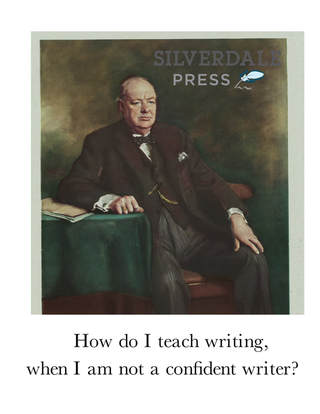 As a homeschool parent, you have your strengths. Maybe you’re good at science experiments. Or maybe arts and crafts is your thing. Maybe you’re a math whiz or a history buff or can speak Spanish fluently. But for most parents, there’s at least one subject that they just don’t feel comfortable teaching. For most parents, there’s at least one subject that requires them to pore over teacher manuals more than usual. And for many parents, that subject is writing. Teaching writing is tricky. There are so many styles, genres, rules, and steps in the writing process to know and teach. So, how do you teach writing if you are not a confident writer? Here are a few tips and words of encouragement: #1 Take comfort in history Did you know that some of the best wordsmiths in history had little to no formal writing instruction?
In our soon-to-be released writing curriculum, we profile these people and many more to teach students the habits of great writers. Hopefully, parents will also take comfort in that some of the greatest writers in history were self-taught. #2: Encourage your child to read What’s another thing that the above great writers had in common? They were all great readers. They immersed themselves in books. Charlotte Mason wrote, "Having been brought up so far upon stylists the pupils are almost certain to have formed a good style; because they have been thrown into the society of many great minds, they will...shape an individual style [by the] wealth of material they possess.” Here, Charlotte Mason is saying that children learn to write by reading. This is so true. One cannot write well if one does not read. Reading helps students extend their vocabularies. Reading helps students develop varied sentence structures. Reading helps students understand the arc of a story. Take your children to the library. Stock your shelves with great works. Set up a reading nook. Carve out quiet space in your homeschool day for independent reading time. It’s true: reading widely covers a multitude of shortcomings! #3 Give your child access to experts through great curriculum Though students can learn much through reading, they can still benefit from some formal writing instruction. There are so many resources available to homeschool families. Find a quality writing curriculum written by a professional writer. It then becomes the curriculum author’s job to teach your child the steps of the writing process. Parents who are not confident writers can take that burden off their shoulders. #4 Learn along with your child By choosing an expertly written curriculum, the parent can learn along with the child. This is a great learning together opportunity that can provide benefits to all. By learning together, the parent will also be equipped to provide encouraging feedback on writing assignments. #5 Use community resources
Chances are, if you do a little digging, you will easily come by some excellent writing resources in your very own neighborhood. #6 Your child’s writing journey will not end with high school graduation You do not have to teach your child everything he or she needs to know by age eighteen. Remember that becoming a writer is a lifelong journey. Your child's writing will continue to improve with age and practice. So rest assured, homeschool parents. Your child can become a great writer, even if writing is not your strong suit. Focus your efforts on providing opportunities, and don’t stress over providing instruction.
0 Comments
Leave a Reply. |
Silverdale PressCheck out our About Page to learn more about us! Categories |

 RSS Feed
RSS Feed